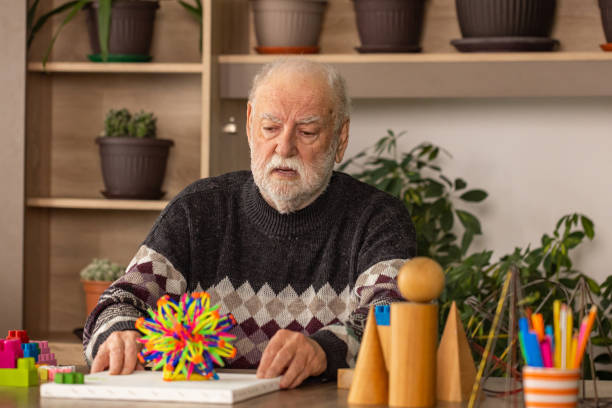As people age, maintaining mental sharpness becomes just as important as physical health. The brain, like any muscle, thrives on regular use. Engaging in indoor hobbies is not only comforting and accessible but also essential for keeping elderly minds active and alert. These hobbies stimulate creativity, promote emotional well-being, and create a sense of purpose. Many older adults, especially those with limited mobility or chronic conditions, find solace in indoor activities that challenge their minds and spark joy. With thoughtful planning, hobbies can transform everyday routines into meaningful experiences.
A growing number of families now explore personalized options to support their aging loved ones in staying mentally active. One such solution includes Senior home care in Irvine, which often integrates stimulating activities into daily care routines. These caregivers help seniors engage in meaningful hobbies, ensuring that mental wellness remains a priority. Whether it’s through painting, reading, or virtual classes, such services help bridge the gap between comfort and cognitive engagement.
Role of Mental Stimulation in Aging
Keeping the brain stimulated helps reduce cognitive decline, boost memory, and improve overall mental health. Scientific studies have shown that regular mental activity may delay the onset of dementia and other age-related issues. Just like physical exercise strengthens the body, mental stimulation sharpens focus, enhances decision-making, and keeps anxiety at bay.
Without regular cognitive engagement, elderly individuals may experience boredom, depression, and memory loss. Activities that challenge the brain not only foster mental clarity but also provide a sense of routine. As seniors face changes in mobility and social circles, indoor hobbies offer comfort, familiarity, and positive reinforcement. These activities encourage them to stay curious and proactive about their mental health.
Creative Hobbies for Mental Agility
Creativity has no age limit. In fact, many seniors rediscover or deepen their artistic passions during retirement. Painting is one of the most therapeutic indoor hobbies, allowing seniors to express emotions and enhance fine motor skills. Knitting, crocheting, and sewing also encourage hand-eye coordination and memory recall as patterns and stitches are repeated.
Writing is another powerful hobby for older adults. Whether it’s journaling, poetry, or storytelling, writing exercises the mind and preserves memories for future generations. Seniors who engage in regular writing often report improved focus and reduced stress. Photography, even when practiced indoors, promotes attention to detail and offers a rewarding way to explore creativity.
Engaging in creative arts helps seniors feel accomplished and confident. These activities can be done alone or in groups, making them ideal for both introverts and those who enjoy company.
Intellectual Hobbies That Spark Curiosity
Intellectual hobbies stimulate problem-solving, strategic thinking, and memory. Reading remains one of the most popular and accessible ways to keep the mind engaged. Whether it’s fiction, non-fiction, or newspapers, reading introduces new ideas and encourages critical thinking. Libraries and digital platforms offer endless choices tailored to personal interests.
Puzzles such as crosswords, Sudoku, and word games challenge the brain in different ways. They improve concentration and pattern recognition. Board games like chess, Scrabble, or dominoes combine social interaction with mental stimulation, making them great for group settings.
Learning a new language or musical instrument also keeps the brain engaged. Many seniors take online courses that allow them to study from home at their own pace. These hobbies challenge memory and cognition, helping maintain mental agility over time. Curiosity doesn’t fade with age; it simply needs new paths to follow.
Social and Interactive Indoor Activities
Socialization is a vital component of cognitive and emotional health in seniors. Unfortunately, isolation is a common issue among older adults. Indoor hobbies that promote interaction can significantly reduce feelings of loneliness and depression. Group storytelling sessions, for instance, allow seniors to share life experiences while practicing memory recall and verbal skills.
Virtual book clubs or group movie discussions offer shared experiences that deepen connections and keep conversations flowing. Seniors who engage in regular social activities often report greater life satisfaction and reduced anxiety. Video calls that include interactive games like trivia or bingo are not only fun but also encourage focus and social bonding.
Even shared cooking sessions over video or in small groups can turn daily tasks into enriching experiences. Encouraging these types of hobbies helps maintain a sense of community and belonging, which is vital for mental wellness.
Technology-Based Hobbies for the Elderly
Today’s seniors are more tech-savvy than ever. With user-friendly devices and guided assistance, older adults can embrace technology to explore new hobbies. Brain-training apps designed for seniors offer puzzles, logic games, and memory challenges tailored to their needs. These apps provide instant feedback and keep users motivated with progress tracking.
Online classes are another excellent resource. Platforms like Coursera, Udemy, or local community centers provide access to everything from history lectures to art tutorials. Seniors can learn at their own pace, revisit lessons, and engage in discussions with other learners around the world.
Virtual travel is another growing trend. Seniors can take guided museum tours, explore distant cities, or attend online concerts all from the comfort of their homes. Technology opens doors to hobbies that once required travel or access to specialized institutions. With a little guidance, older adults can use digital tools to remain intellectually curious and mentally stimulated.
Conclusion
Engaging in indoor hobbies is not just a way to pass the time it’s an essential aspect of healthy aging. Mental stimulation through creative, intellectual, and social activities helps seniors stay sharp, positive, and connected. These hobbies foster personal growth, preserve cognitive function, and promote emotional balance.
Families and caregivers play a vital role in encouraging and facilitating these experiences. Whether through direct involvement, digital tools, or support services like senior care, there are countless ways to support a loved one’s mental engagement. The key lies in choosing activities that match the senior’s interests, abilities, and lifestyle.
Aging may bring changes, but the desire to learn, create, and connect never fades. By embracing meaningful indoor hobbies, seniors can continue to thrive mentally and emotionally, no matter where they are in life’s journey.





